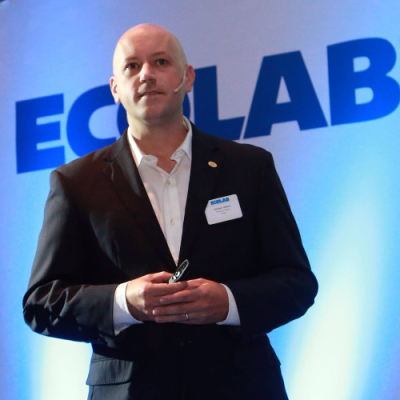Monday, March 16, 2026: Agentic AI in Shared Services Bootcamp
Agentic AI in Shared Services Bootcamp
8:00 am - 8:30 am
Registration
8:30 am - 8:35 am
SSOW Welcome
8:35 am - 8:40 am
Chairperson Remarks
CK Taneja -
SVP, AI Strategist,
Northern Trust
8:40 am - 8:55 am
Presentation | State of the Industry for Agentic AI in GBS: SSON Research and Analytics Report Findings
Naomi Secor -
Global Managing Director,
SSON Research & Analytics
Agentic AI is at the center of a shift in how shared services and GBS organizations operate. But what is the reality of how current organizations are deploying the technology? This session will share data from SSON Research and Analytics on what Agentic AI currently means to the industry. This insight-packed session will:
- Showcase the evolution of Agentic AI within current SSOs and GBSOs
- Explore how Agentic AI is redefining operational capabilities, enabling the transition from transactional support to strategic business enablement.
- Analyze the role of data, automation, and AI in building intelligent, adaptive service delivery models.
- Identify the most disruptive trends shaping the future of GBS, with Agentic AI at the center of next level value creation.
8:55 am - 9:25 am
Presentation | Agentic AI in Action: Commercial Process Reengineering with AI to Drive Process Efficiency and Scale in GBS
Amanda Sá -
Director, Digital Transformation & Innovation,
Bosch Latin America
Jonatas Santos - Sr. Manager, Digital Transformation & Innovation, Bosch Latin America
Agentic AI is moving beyond experimentation and into day-to-day operations, enabling a new wave of commercial process reengineering with AI. In this session, Bosch Latin America demonstrates how Generative AI and Agentic AI are being embedded into core GBS and commercial processes to redesign how work is executed—driving productivity, reducing cycle times, simplifying workflows, and enhancing quality and user experience.
Through real use cases from logistics, controlling, and other shared services and commercial functions, the session shows how AI agents are not just automating tasks, but reengineering end-to-end processes. Participants will see how AI is integrated into existing process landscapes and adopted across teams to support both operational efficiency and commercial outcomes.
Bosch also shares practical lessons learned from implementing AI-driven process reengineering, including governance models, adoption strategies, and change management.
Key Takeaways
• How Agentic AI enables commercial process reengineering by redesigning end-to-end GBS workflows, not just automating individual steps.
• Practical lessons on governance, adoption, and integration when scaling AI-driven process reengineering across shared services and commercial functions.
• How to translate AI strategy into execution by embedding AI agents into real processes that deliver measurable efficiency, quality, and business impact.
9:25 am - 9:55 am
Use-Case | Demystifying the Operating Model Shift: Enabling End-to-End Transformation with Agentic AI
Marshall Tokheim -
VP, GBS Business Transformation Leader,
Ecolab
As enterprises explore the transformative potential of AI, agentic AI is emerging as a powerful enabler for reimagining end-to-end business processes. In this session, we showcase how Ecolab is applying agentic AI solutions across the Lead to Cash value stream—such as cash application, customer master data management, and order-to-invoice workflows—to drive intelligent, autonomous execution at scale. These demonstrations will illustrate not just technology deployment, but how AI can fundamentally reshape process architecture. Beyond implementation, we will explore the broader operating model implications: how organizations must evolve in structure, roles, and governance to support AI-enabled process ownership and decision-making. The session aims to inspire a shift in mindset—from isolated automation to holistic, AI-led process reinvention.
Key Takeaways:
• How agentic AI can drive end-to-end process transformation across domains like cash application, customer data management, and order-to-invoice that move beyond task automation to full process execution.
• What it takes to operationalize agentic AI at scale, including technical design, deployment strategies, and lessons learned from real use cases at Ecolab.
• How to evolve your operating model to support AI-enabled processes, including shifts in organizational structure, roles, governance, and decision-making authority.
9:55 am - 10:25 am
Panel | Streamlining as a Value Creation Mechanism: A Framework for Operational Excellence
Valquir Correa -
VP, Corporate Finance,
Baha Mar
Brian O'Neil - Sr. Director of Shared Services for North America, TD Synnex
Shared services have long been seen as necessary cost centers—but Agentic AI is changing that. By enabling systems to act autonomously in pursuit of defined objectives, agentic AI unlocks new levels of efficiency, agility, and strategic impact, with the potential outcome of redefining who is necessary for SSOs.
This session focuses on how organizations can leverage autonomous AI agents to move beyond transactional processing and deliver measurable business value. We’ll explore how agentic AI can optimize operations, accelerate service delivery, and surface innovation opportunities across finance, HR, IT, and procurement. Attendees will learn how to identify high-value use cases, calculate ROI, and ensure scalability, accountability, and responsible adoption.
Whether you're looking to reduce operational overhead, improve service levels, or create new strategic capabilities, this session will equip you with the vision and tools to turn shared services into a value-generating powerhouse.
Key Takeaways:
- Discover how agentic AI drives tangible cost savings and operational efficiencies in shared services
- Learn to identify AI initiatives that unlock new revenue streams and strategic opportunities
- Understand how to quantify business value through ROI metrics tied to service quality and speed
- Explore approaches to scaling AI responsibly while maximizing long-term organizational impact
- Gain tools to align AI-driven transformation with broader enterprise goals for sustainable growth
10:25 am - 10:55 am
Use-Case | Empowered Teams, Intelligent Automation through Agentic AI: Inside Mercado Libre’s Finance Reinvention
Javier Bravo -
FinOps Sr. Manager, PTP,
Mercado Libre
Francisco Rico - Sr. Manager, Mercado Libre
Gustavo Rissola - Sr. Director, Mercado Libre
Discover how Mercado Libre, Latin America’s most valuable company, is redefining operational agility through a finance transformation powered by agentic AI. Facing the complexity of supporting over 100,000 employees across 18 markets, the finance operations team built an intelligent automation platform and empowered business-led “ambassador” teams to design and deploy AI agents that deliver 100% end-to-end process automation across key finance functions. Through rapid in-house deployment of AI agents in procure-to-pay, order-to-cash and record-to-report, Mercado Libre has streamlined operations, reduced outsourcing costs, and generated $1.8 million in annual savings within three months.
Key Takeaways:
• How agile organizational structures accelerate AI-driven finance transformation.
• Ways to empower business-led teams to design and deploy automation without relying on IT.
• How a culture of continuous innovation drives sustained performance and adaptability.
• Practical strategies for scaling end-to-end automation across complex markets and functions.
• How Mercado Libre’s AI-first finance model enables hypergrowth—launching new businesses and capabilities every quarter.
10:55 am - 11:25 am
Networking Break
11:25 am - 11:55 am
TBD
11:55 am - 12:25 pm
Panel | The Conundrum of Build or Buy
Prashant Kelker -
Partner, Americas Consulting & CSO,
ISG
Aruna Katakamsetti - Senior Director, Global Finance Services, Astellas Pharma
April Russo - VP, Compliance & Transformation, USA TODAY Co.
As Agentic AI moves from concept to capability, Shared Services leaders face a critical question: should we invest in an off-the-shelf platform or build a custom, in-house solution?
This session details the strategic, technical, and operational trade-offs of each path. Participants will explore how to evaluate organizational readiness, assess internal capabilities, and compare long-term value between buying and building agentic AI. We’ll also cover key factors like integration complexity, data governance, scalability, and total cost of ownership.
Through guided discussion and practical frameworks, attendees will walk away with clearer criteria for decision-making—plus concrete next steps for piloting or procuring agentic AI solutions tailored to their organization’s needs.
Key Takeaways:
- Understand the core differences between off-the-shelf and custom-built agentic AI solutions
- Learn how to assess your organization’s readiness and internal capabilities for AI adoption
- Explore critical factors such as integration challenges, data governance, scalability, and total cost of ownership
- Gain frameworks to evaluate long-term value and ROI for buy vs. build decisions
- Receive practical guidance on next steps for piloting or procuring agentic AI tailored to your environment
12:25 pm - 12:55 pm
TBD
12:55 pm - 1:55 pm
Networking Lunch
1:55 pm - 2:00 pm
Short Transition to Interactive Discussion Groups
Interactive Discussion Group 1
2:00 pm - 2:30 pm Reimagining Procurement: Virtual Assistants in Action Claudia Armenta Rentería - Global Process Owner, Procure to Pay, CEMEXInteractive Discussion Group 2
2:00 pm - 2:30 pm Data and Governance Foundations: Creating Autonomous, AI-Driven Shared Services Greg Goelkel - Head of Presales, ORO LabsInteractive Discussion Group 3
2:00 pm - 2:30 pm From Vision to Value: Who Owns Agentic AI Across the Enterprise Swarna Kuruganti - Formerly - Enterprise AI, US FoodsInteractive Discussion Group 4
2:00 pm - 2:30 pm Outsourcing in the Age of Agents: Reprice, Re-scope, and Re-govern Service Providers and Platforms for AI Productivity Prashant Kelker - Partner, Americas Consulting & CSO, ISGInteractive Discussion Group 1
2:30 pm - 3:00 pm Reimagining Procurement: Virtual Assistants in Action Claudia Armenta Rentería - Global Process Owner, Procure to Pay, CEMEXInteractive Discussion Group 2
2:30 pm - 3:00 pm Data and Governance Foundations: Creating Autonomous, AI-Driven Shared Services Greg Goelkel - Head of Presales, ORO LabsInteractive Discussion Group 3
2:30 pm - 3:00 pm From Vision to Value: Who Owns Agentic AI Across the Enterprise Swarna Kuruganti - Formerly - Enterprise AI, US FoodsInteractive Discussion Group 4
2:30 pm - 3:00 pm Outsourcing in the Age of Agents: Reprice, Re-scope, and Re-govern Service Providers and Platforms for AI Productivity Prashant Kelker - Partner, Americas Consulting & CSO, ISG
3:00 pm - 3:30 pm
Networking Break
3:30 pm - 4:15 pm
Demos | Use Case Blitzes
Brad Meador -
Director, Digital Transformation,
USA TODAY Co.
Pranav Mulgund - CEO & Co-Founder, Fragment Data Technologies
1) DARIA Presentation:
From the minds of USA Today Co. comes DARIA (Digital Assistant for Rapid Issue Analysis), a Copilot-powered agent designed to assist on-call personnel by searching a curated SharePoint-based knowledge base to resolve support issues faster. Built entirely with Microsoft Copilot and requiring only a standard license, DARIA offers a practical, low-barrier entry point into agentic AI.
Presented by: Brad Meador, Director, Digital Transformation, USA TODAY Co.
2) Automating Manual Rework/ Exceptions in S2P with Fragment:
This presentation explores autonomous, end-to-end exception resolution using Fragment’s AI agents, which automate the full source-to-pay process through a novel context-layer approach, focusing on work traditionally handled as manual effort or rework.
Presented by: Pranav Mulgund, CEO & Co-Founder, Fragment Data Technologies
Pranav Mulgund
CEO & Co-FounderFragment Data Technologies
4:15 pm - 4:45 pm
Use-Case | Driving Measurable Value through OE Agents and Digital Enablement
Jesús Villalobos -
Process Enablement GBS Americas,
Kerry
Hector Alderete - Head of Global Business Services, Americas, Kerry
This session will explore how Operational Excellence (OE) Agents deliver tangible value by integrating digital tools, enhancing problem solving capabilities, and driving process standardization across the organization. At Kerry, over 250 employees have adopted digital solutions that accelerate transformation and investment into 70 White, Yellow and Green Belts. Additionally, the development of more than 70 White, Yellow, and Green Belts, has significantly improved problem resolution speed and effectiveness within their business. And that is just the start. In this session, you will:
Key Takeaways:
- Learn how digital agents like OMP Assistant and CMBOT are transforming day-to-day operations
- Understand the role of Lean Six Sigma trained OE Agents in accelerating problem solving through operational excellence resolution assistants that define, measure, analyze, improve, and control
- Build scalable strategies and standardize work using tools like the standard operating procedure and work instruction coaches
- Demonstrate key metrics that show measurable value delivered by OE initiatives
- Lessons learned and success factors in deploying OE tools and training at scale
4:45 pm - 5:15 pm
Use-Case | Orchestrating the Future of Finance: Achieving Seamless End-to-End Agility with Agentic AI
Linford Dailey -
Global Digitalization & Automation Leader,
Bosch
In today's hyper-competitive B2C landscape, optimizing Bill-to-Cash is paramount for both customer satisfaction and financial resilience. Traditional automation alone no longer suits. This session will show how BOSCH is leveraging Agentic AI to move beyond basic automation and achieve truly re-designed, autonomous end-to-end execution at scale within its Bill-to-Cash value stream.
Through practical demonstrations, we will showcase not only the deployment of cutting-edge technology, but how Agentic AI fundamentally redefines the operational framework of financial processes such as dispute resolution and payment predictability.
This session aims to drive a critical transformation—from fragmented operations to a unified, global, AI- and data-driven management model—empowering your organization to engage customers with greater accuracy, agility, and confidence.
Key Takeaways:
• Explore how Agentic AI drives end-to-end process transformation across B2C models, including dynamic credit assessment, personalized billing, predictive receivables, and intelligent cash application.
• Understand how Agentic AI's advanced analytics and data processing capabilities directly improve forecasting, cash flow management, and financial stability, self-optimizing financial workflows and significantly reducing manual intervention.
• Explore how AI enhances personalization, speeds up dispute resolution, and improves overall transparency, leading to elevated B2C customer satisfaction.
5:15 pm - 5:45 pm
Panel | Change Management Essentials for Seamless Adoption
Christof Fahr -
Global Lead, GBS Productivity and Value Creation,
Siemens
Robert Phillips - VP Business Transformation, Well Health Technologies
As agentic AI assumes more autonomous roles in shared services, the greatest challenge isn't the technology—it's the people.
This session focuses on how to lead through change as workflows evolve, and human-AI collaboration becomes the norm. We’ll explore strategies to reduce resistance, build trust in AI systems, and support teams as roles shift from task execution to oversight, orchestration, and strategic contribution.
Attendees will gain practical approaches to upskilling, communication, and engagement—helping leaders turn potential disruption into an opportunity for growth, empowerment, and culture change.
Key Takeaways:
- Understand the human impact of introducing autonomous AI in shared services
- Learn proven strategies to reduce resistance and foster trust in AI-driven workflows
- Explore upskilling approaches that prepare staff for evolving higher-value roles
- Gain tools for transparent communication and employee engagement during AI transitions
- Discover how to build a culture that embraces human-AI collaboration, not competition.
























